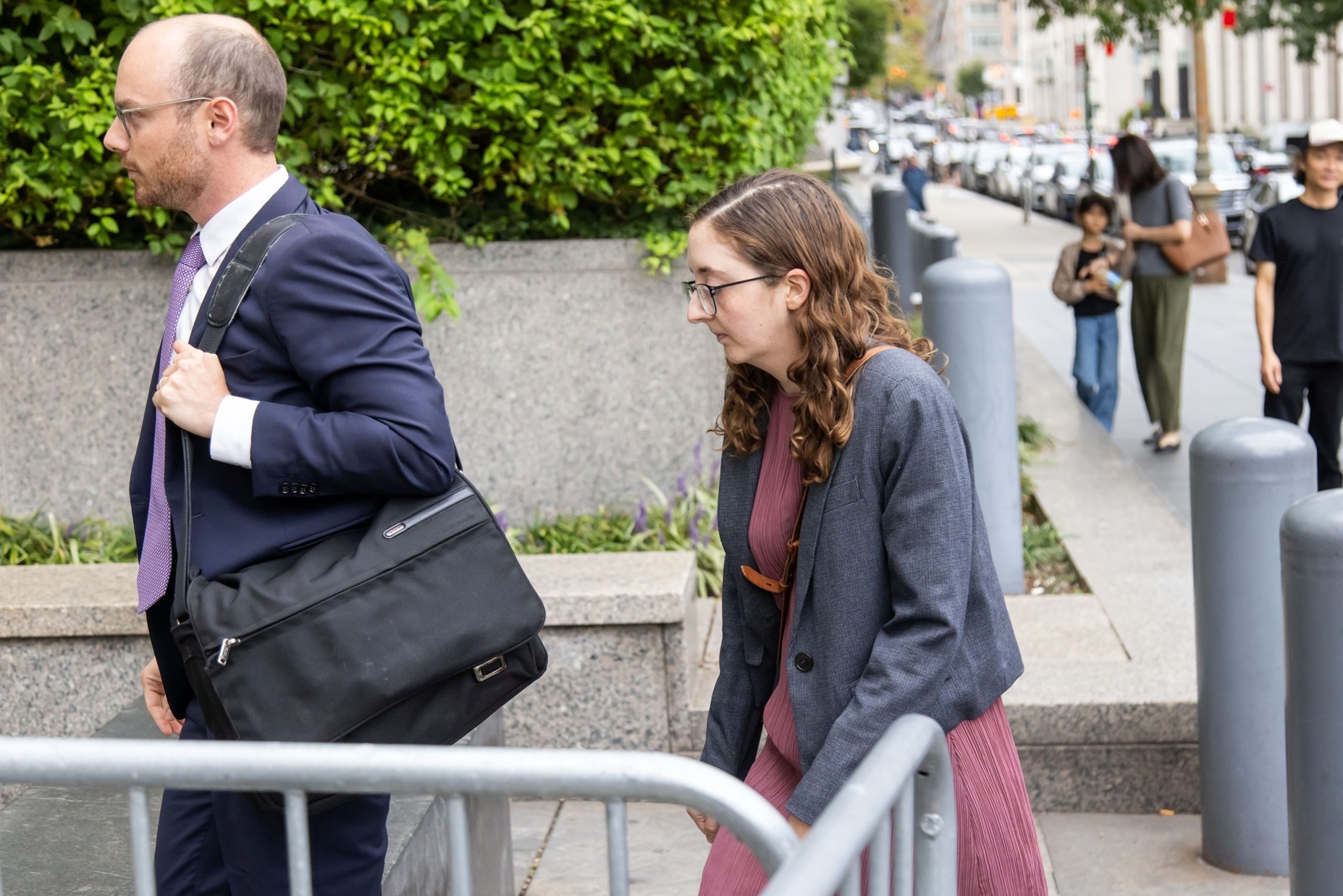
NEW ORLEANS — A Texas county that wants to keep 17 books off its shelves — some dealing humorously with flatulence and others with issues including sex, gender identity and racism — argued its case Tuesday before 18 federal appeals court judges amid questions on whether the rights of the patrons or county officials were at risk.
Library patrons filed suit in 2022 against numerous officials with the Llano County library system and the county government after the books were removed. A federal district judge in Texas issued a preliminary injunction requiring that the books be returned in 2023. But the outlook became murkier when three judges of the 5th U.S. Circuit Court of Appeals split three ways on the issue in June — one saying all 17 books should stay on the shelves, another saying only eight had to stay, and another saying the court should leave it up to the county.
The upshot was that eight books were to be kept on the shelves. But the full court voted to toss that ruling and rehear the case. Tuesday’s arguments were heard by the 17 full-time judges of the 5th Circuit, plus Jacques Wiener, a senior 5th Circuit judge with a reduced workload who was part of the original panel.
It is unclear when the full court will rule.
Judges closely questioned attorneys on both sides as attorneys supporting the county said government officials’ decisions in curating a library’s book selection amount to protected government speech.
Judge Leslie Southwick expressed concern that allowing the officials to remove certain books amounts to repression of viewpoints,.
Judge Stuart Kyle Duncan was more sympathetic to the county, noting a litany of “weeding” guidelines libraries use in deciding which books to stock based on a variety of factors from the age and condition of the book to subject matter that could be considered outdated or racist.
He raised questions of whether a library could be allowed to remove an overtly racist book by former Ku Klux Klan leader David Duke or the children’s book “The Cat in the Hat,” which has been criticized for allegedly drawing on racist minstrel show culture.
The books at issue in the case include “Caste: The Origins of Our Discontent” by Isabel Wilkerson; “They Called Themselves the K.K.K: The Birth of an American Terrorist Group,” by Susan Campbell Bartoletti; “In the Night Kitchen” by Maurice Sendak; “It’s Perfectly Normal: Changing Bodies, Growing Up, Sex and Sexual Health” by Robie H. Harris; and “Being Jazz: My Life as a (Transgender) Teen” by Jazz Jennings.
Other titles include “Larry the Farting Leprechaun” by Jane Bexley and “My Butt is So Noisy!” by Dawn McMillan.
In June’s panel ruling, Wiener, who was nominated to the 5th Circuit by former President George H. W. Bush, said the books were clearly removed at the behest of county officials who disagreed with the books’ messages.
Another panel member was Southwick, a nominee of former President George W. Bush, who agreed with Wiener — partially. He argued that some of the removals might stand a court test as the case progresses, noting that some of the books dealt more with “juvenile, flatulent humor” than weightier subjects.
“I do not find those books were removed on the basis of a dislike for the ideas within them when it has not been shown the books contain any ideas with which to disagree,” Southwick wrote.
Also on that panel was Duncan, a nominee of former President Donald Trump, who dissented fully. “The commission hanging in my office says ‘Judge,’ not ‘Librarian.’ ” Duncan wrote.
In a recent decision by an appeals court, a Texas county has asserted its right to remove books on sex, gender, and racism from its public libraries. The ruling has sparked controversy and debate over censorship, freedom of speech, and the role of government in regulating access to information.
The case began when the county’s board of commissioners voted to remove several books from library shelves that they deemed inappropriate for the community. The books in question covered topics such as LGBTQ rights, feminism, and systemic racism. The decision was met with backlash from residents, library staff, and free speech advocates who argued that the removal of these books was a violation of the First Amendment.
The appeals court ultimately sided with the county, ruling that the government has the authority to make decisions about the content of its public libraries. The court cited a precedent set in a previous case where a school district was allowed to remove books that were deemed harmful or inappropriate for students.
Proponents of the decision argue that the county has a responsibility to protect its residents from potentially harmful or offensive material. They believe that removing books on controversial topics such as sex, gender, and racism is necessary to maintain community standards and values.
However, critics of the ruling argue that censorship of any kind is a slippery slope that can lead to the suppression of dissenting viewpoints and the stifling of intellectual freedom. They believe that access to diverse perspectives and information is essential for a healthy democracy and that the government should not have the power to dictate what people can and cannot read.
The debate over the removal of books on sex, gender, and racism in Texas highlights the ongoing tension between freedom of speech and the government’s authority to regulate public resources. It raises important questions about who gets to decide what is appropriate for public consumption and how to balance the rights of individuals with the interests of the community as a whole.
As the case continues to unfold, it is clear that the issue of censorship in public libraries is far from settled. It serves as a reminder of the importance of protecting intellectual freedom and fostering open dialogue on controversial issues, even when they may be uncomfortable or challenging. Ultimately, it will be up to communities, lawmakers, and courts to navigate these complex issues and find a balance that respects both individual rights and collective values.


